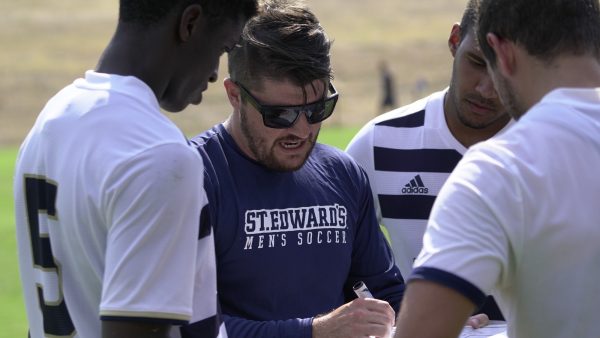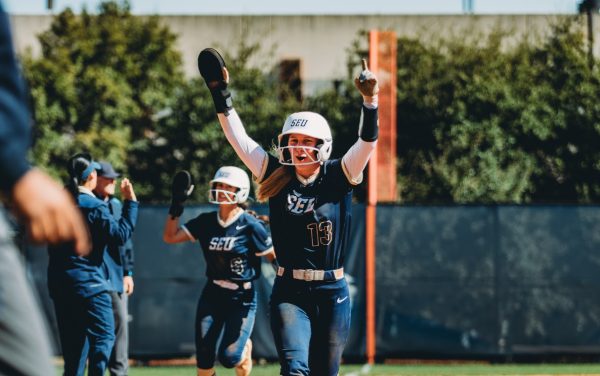Game raises disability awareness
Air-ball after air-ball, blister after blister, St. Edward’s University faculty, staff and students realized the challenges that come with playing basketball in a wheelchair.
But swish after swish, fast break after fast break, the Austin Rec’ers proved that playing basketball in a wheelchair is a skill, not a stigma.
The St. Edward’s Disability Committee organized an exhibition game in the Recreation and Convocation Center Feb. 25. A team of St. Edward’s volunteers played the Rec’ers, a local wheelchair basketball team that competes nationally.
Anna Escamilla, director of Student Disability Services, said the committee organizes events like this game to raise awareness of physical disabilities.
“The faculty and staff will realize that people with physical disabilities are able to be part of the community in a positive, fun way, not just because the law tells you too,” Escamilla said.
Although the purpose of the game had serious connotations, the mood in the gym was that of a fun, yet competitive game. The St. Edward’s team was spotted 30 points before the game began, and the Rec’ers didn’t need much time to catch up.
At halftime, the score was 32 to 26, with the Hilltoppers still in the lead. By the end of the game, the Rec’ers beat the Hilltoppers 45 to 34. Although the Hilltoppers lost, the game ended in smiles, handshakes and team pictures.
Larry Turner, the Rec’ers head coach, said he enjoyed every minute of the game, but the best part was seeing the volunteers trying to maneuver the wheelchairs.
“[The best part of the game was] just the fun of watching the staff try and play the game,” Turner said.
Craig Campbell, associate professor, agreed that the game was challenging. As Sean Donahue, head coach of the women’s volleyball team, walked by showing his blisters, Campbell summarized the game simply.
“It was really hard,” Campbell said. “I kept being afraid that I was going to stick my fingers in the spokes.”
The game was a success and portrayed the message that the committee had hoped, Escamilla said.
“It’s not an issue about pity,” she said. “It’s an issue about a different life and sometimes that can be very positive.”






